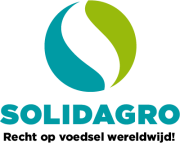Let's talk about our rights - A meeting in Senegal between partners
Aug 27, 2019
In April, Viva Salud, KIYO and Solidagro brought together their partner organizations from Morocco, Mali, Burkina Faso, Senegal, DR Congo and Burundi in Senegal for an exchange on the strategy and good experiences of each in the defence of the rights of all.
We started by exchanging the specificities of our approach, the rights-based approach, by sharing experiences from the field. Each country presented the pillars that seem to be the most important.
Let's talk about rights, not needs.
The fact that we are talking about rights and not needs was the first pillar. Closing a gap through services provided to the population does not make it possible to change its causes in a sustainable way. What we want is for people to claim their rights and no longer feel they are victims. Oscar from Burundi (from JJB, KIYO partner) told us that after the training on children's rights given by JJB, members of children's and youth clubs set up communal platforms to act on problematic child rights issues in their constituencies in order to influence decisions on children's rights. They no longer feel victimized and are no longer just passively waiting for a better situation.
Address the causes, not the symptoms
The importance of a good analysis of the situation was the second pillar we discussed. Take the time to analyse the underlying causes of problems or violations of rights so that it's not just the symptoms that are being addressed. Fatimata from Burkina Faso (ASK, Solidagro's partner) described the difficulties and lessons learned that beneficiaries had encountered when they analysed the entire chain of causes, as well as all the actors concerned (both rights holders and duty bearers) with regard to access to land for communal vegetable gardening.
Address those who are accountable to us
The role of the State and, more generally, that of "duty bearers" was our third pillar. It is important to call on those who have a duty to ensure the rights of the population. This is what Mrs. Ouafaa from Karama - For women's development (partner of KIYO) - from Morocco told us. She described their awareness-raising campaign to facilitate the recognition of Moroccan children, especially children born outside marriage.
From dialog to protest
And, finally, empowerment as a tool for mobilization. In this context, Deo from CODIC in DR Congo (partner of Viva Salud) presented us with the campaign "Water is life" and the empowerment process that has been set up with the population: 1) Dialog: community discussion of the identified problems, 2) Advocacy: proposed solutions and 3) Demands and protest.
One approach and several themes
Each organization has specialized in a specific theme: the right to health for Viva Salud, children's rights for KIYO and the right to food for Solidagro. So we took the time to get to know these three rights better. When talking about children's rights, Francelline from Burkina Faso (Pag-La-Yiri, partner of Solidagro) told us: "Maybe we apply the rights-based approach, but we don't reflect about it. "And that's exactly what we wanted to highlight: all these things that the partners are doing and that could be capitalized on to be better shared and promoted.
We also discussed gender and how to integrate it more into our work. Thanks to Safoura from Solidagro's local office in Burkina Faso, we exchanged experiences and good practices and how we could better implement actions in favour of gender equality.
Solidagro and the agro-ecological movement in Senegal
This partner meeting also enabled us to visit Solidagro's partners and beneficiaries on site. We went to the Federation of Women of Toubacouta where we could take a closer look at what efforts they had made to organise themselves in this way and the impact the partnership with Solidagro had on improving their living conditions. Women who used to only take care of their plot of land with limited resources are now united and are recognized by their municipality as a key player. Thanks to Solidagro's support, they now have a building where they can meet each other and store their products. They also follow training courses to better manage their federation and to cultivate their land according to an agro-ecological model.
We also had the opportunity to share the expertise of four prominent speakers from the agro-ecological movement in Senegal, which allowed us to better understand the challenges of agricultural ecology and in particular of agricultural seeds. Despite their many advantages (adapted to local conditions, resistant to drought, diseases and parasites, high nutritional value, etc.), they are not accepted by the official system in Senegal. The state prefers industrial varieties, under pressure from the agro-industry, despite the fact that Senegal has signed an international treaty (TIRPAA) that guarantees the protection and use of these farm seeds.
Thematic evaluation
This event was possible as part of the mid-term evaluation of our five-year program (2017-2021). We were able to address a thematic issue and it seemed natural to us to choose the coherence of our approach. And after listening and sharing the experiences of 6 African countries, the rights-based approach seems to be very coherent to enable us to achieve our objective as effectively as possible: All together for the rights of all! This meeting is part of an evaluation process that includes external and cross evaluations of the countries in which our three organizations are active. External evaluations will be conducted by an external evaluation office, C-lever.org. Cross-country evaluations will be organized by a member of staff from one of the organizations in our joint program who will travel to a country where one of the other two organizations is active. This will allow, on the one hand, to benefit from evaluation by someone who understands the program and its objectives from the inside and, on the other hand, to learn how to evaluate a project and ask the right questions.
Ferme des 4 chemins
The "Ferme des 4 chemins" in Toubab Dialaw (Senegal) is an impressive example of what is possible in growing vegetables in the arid sahel. The farm is run by 3 to 4 women's groups. The different techniques of agro-ecological farming are applied (compost, crop rotation, association of plants, animal manure, nitrogen-binding trees ...). A few machines for animal traction are used, own seed propagation, a drying installation for mango to dry, poultry, a (draft) horse, etc.
Access to land
"Access to land" is an important theme in West Africa. CNCR (partner of Solidagro in Senegal) pays a lot of attention to this. There is a lot of land, but not all land is equally fertile, water is not always present, there must be a good fence to keep the cattle out ... It is important that when using land, property rights are also regulated. In the other case, the owner can claim his land back a few years later. The plot may then be worth more because wells have been dug, because fertility has improved through the use of compost, planting trees, etc.
In Toubacouta the women's group received a piece of land from the municipality.
Processing of agricultural products
In Toubacouta, the women's federation is strongly committed to post-harvest technology and processing of agricultural products. In this way, products are not lost after harvest, value is added, labor is created, products can be traded in periods with better pricing, food can be kept for a longer period, etc. Solidagro supported the women's federation in building a warehouse where agricultural products are processed and stored.






